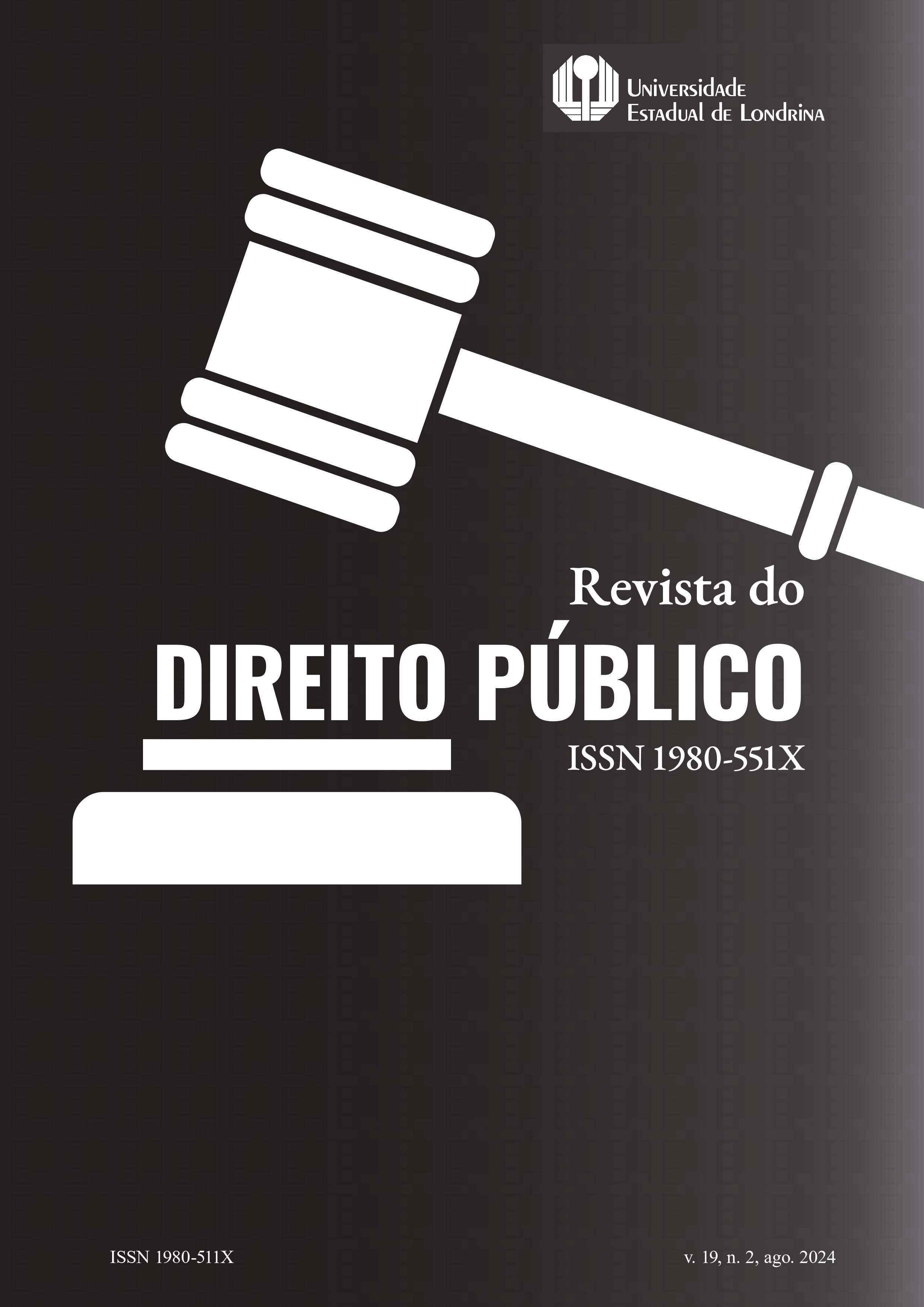IS THERE DEMOCRACY IN SOCIAL VULNERABILITY?
RETHINKING LIBERAL DEMOCRACY
DOI:
https://doi.org/10.5433/1980-511X.2024.v19.n2.47867Keywords:
Democracy, Popular participation, Representativeness, Social vulnerabilityAbstract
Due to the Covid-19 pandemic, which has made the world even more unequal, liberal democracy, a hegemonic paradigm already in crisis, needs to be rethought for an inclusive social practice. In this context, the general objective of this theoretical research was to reflect on participatory democracy as an alternative to the essentially representative model in the face of social vulnerability. The results showed that liberal democracy limits individual and collective participation to avoid jeopardizing capital accumulation in the face of social distribution demands. Therefore, democracy, aiming at social justice in the face of vulnerability, needs to be structured in four dimensions: distribution, recognition, representativity, and participation. In conclusion, it is understood that counter-hegemonic democracy requires, through the coexistence and complementarity of direct participation and indirect representation, the redistribution of resources, the recognition of cultural plurality, and social inclusion.
Downloads
References
BOBBIO, Norberto. Liberalismo e democracia. 6. ed. São Paulo: Brasiliense, 2000.
DAHL, Robert A. A democracia e os seus críticos. São Paulo: Martins Fontes, 2012.
DEMOCRACY index: in sickness and in health?. The Economist, London, 2020. Disponível em: https://www.eiu.com/n/campaigns/democracy-index-2020-download-success. Acesso em: 12 dez. 2022.
FINEMAN, Martha Albertson. The limits of equality: vulnerability and inevitable inequality. In: WEST, Robin; BOWMAN, Cynthia G. (org.). Research handbook on feminist jurisprudence. Cheltenham: Edward Elgar Publishing, 2019. p. 73-90.
FLORES, Joaquin Herrera. A (re)invenção dos direitos humanos. Florianópolis: Fundação Boiteux, 2009.
FRASER, Nancy. Reconhecimento sem ética?. In: SOUZA, Jessé; MATTOS, Patrícia (org.). Teoria crítica no século XXI. São Paulo: Annablume, 2007. p. 79-94.
FRASER, Nancy. Rethinking recognition. New Left Review, London, n. 3, p. 107-120, maio/jun. 2000. Disponível em: https://newleftreview.org/issues/ii3/articles/nancy-fraser-rethinking-recognition. Acesso em: 20 ago. 2021.
HABERMAS, Jürgen. Três modelos normativos de democracia. Lua Nova, São Paulo, n. 36, p. 39-53, 1995. DOI: http://dx.doi.org/10.1590/s0102-64451995000200003 DOI: https://doi.org/10.1590/S0102-64451995000200003
IBGE – INSTITUTO BRASILEIRO DE GEOGRAFIA E ESTATÍSTICA. Desigualdades sociais por cor ou raça no Brasil. Rio de Janeiro: IBGE, 2019. Disponível em: https://biblioteca.ibge.gov.br/visualizacao/livros/liv101681_informativo.pdf. Acesso em: 20 ago. 2021.
LINDBERG, Staffan I. (ed.). Democracy report 2021: autocratization turns viral. Gothenburg: V-Dem Institute, 2021. Disponível em: https://www.v-dem.net/static/website/files/dr/dr_2021.pdf. Acesso em: 7 nov. 2021.
MAIR, Peter. ¿Gobernar el vacío? El proceso de vaciado de las democracias occidentales. New Left Review, Madrid, v. 42, p. 22-46, jan./fev. 2007. Disponível em: https://newleftreview.es/issues/42/articles/peter-mair-gobernar-el-vacio.pdf. Acesso em: 20 ago. 2021.
MONEDERO, Juan Carlos. Curso urgente de política para gente decente. Barcelona: Seix Barral, 2013.
MONEDERO, Juan Carlos. El gobierno de las palabras: politica para tiempos de confusión. Madrid: S.L. Fondo de Cultura Economica de España, 2009.
PHILLIPS, Anne. O que há de errado com a democracia liberal?. Revista Brasileira de Ciência Política, Brasília, DF, n. 6, p. 339-363, jul./dez. 2011. DOI: https://doi.org/10.1590/S0103-33522011000200013 DOI: https://doi.org/10.1590/S0103-33522011000200013
RAWLS, John. O liberalismo político. São Paulo: Martins Fontes, 2011.
SANTOS, Boaventura de Souza; AVRITZER, Leonardo. Para ampliar o cânone democrático. In: SANTOS, Boaventura de Souza (org.). Democratizar a democracia: os caminhos da democracia participativa. Rio de Janeiro: Civilização Brasileira, 2002. p. 39-82.
SOUZA, Pedro Herculano Guimarães Ferreira de. A pandemia de covid-19 e a desigualdade racial de renda. Boletim de Análise Político-Institucional, Brasília, DF, n. 26, p. 37-44, mar. 2021. DOI: http://dx.doi.org/10.38116/bapi26art4 DOI: https://doi.org/10.38116/bapi26art4
TABARES, Camila de Vasconcelos; CONCEIÇÃO, Bruno da Silva; MARQUES, Rodolfo Silva. Mulheres, raça e partidos no Brasil: análise da sub-representação das candidaturas identitárias nas eleições de 2018. Revista de Informação Legislativa, Brasília, DF, n. 229, p. 57-77, jan./mar. 2021. Disponível em: https://www12.senado.leg.br/ril/edicoes/58/229/ril_v58_n229_p57.pdf. Acesso em: 20 ago. 2021.
Downloads
Published
How to Cite
Issue
Section
License
Copyright (c) 2024 Thaís Dalla Corte, Tiago Dalla Corte, Guilherme Lunelli

This work is licensed under a Creative Commons Attribution-NonCommercial-NoDerivatives 4.0 International License.
Os autores cedem à Revista do Direito Público, direitos exclusivos de primeira publicação, com o trabalho simultaneamente licenciado sob a Licença Atribuição-NãoComercial-CompartilhaIgual 4.0 Internacional. Esta licença permite que terceiros façam download e compartilhem os trabalhos em qualquer meio ou formato, desde que atribuam o devido crédito de autoria, mas sem que possam alterá-los de nenhuma forma ou utilizá-los para fins comerciais. Se você remixar, transformar ou desenvolver o material, não poderá distribuir o material modificado.












